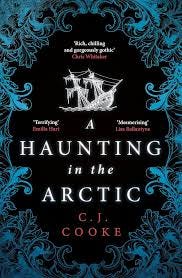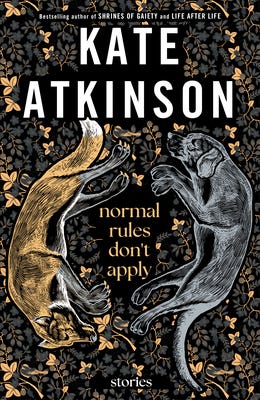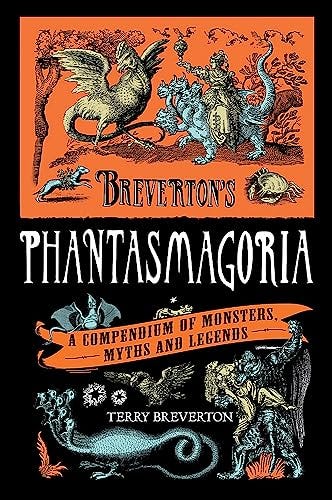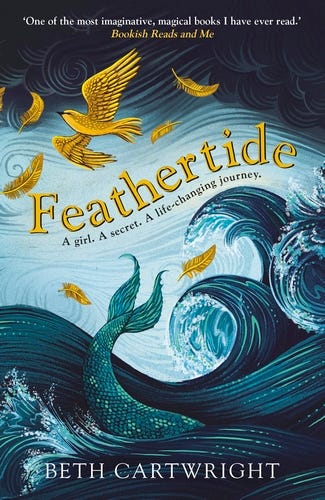I’ve been giving the concept of a pact with the land a lot of thought since I read ‘Meet Me At The Surface’. The central element of the story is a pact made with the land, many years ago, and not fully understood. Ultimately it is about what happens when the land calls in its dues.
When we industrialised our lives, moved away from working with the land and moved faster towards the digitalisation of our world, consumerism and ultimately neo-capitalism, we unwittingly made a pact with the land. We used the earth’s resources, yet we didn’t listen to what the payment for those resources might be.
We have arguably spent around 6000 years, since we first started farming, attempting to control what cannot be controlled, separating ourselves from it and gradually becoming further and further apart from it rather than a part of it. Making pacts and taking gifts we can never hope to truly repay within our own lifetimes.
So it’s time to make a new pact.
We are not in control, we never were and we never will be, this is a relationship of trust, abuse that trust and the land will call in its dues: wild fires, tsunamis, storms, extremes of weather, the land is reclaiming its resources. If we listen, the land will also tell us what we need to do to restore the balance, to accept the pact we made all those years ago and make a new one. One that seeks to mend the damage done in a deal we did not fully understand and instead make reparations.
If we listen to the stories in the landscape then we can hear what the land needs and how we might start to build a reciprocal agreement with the land once more. This space, the place in which we listen to these stories, is on occasion liminal. It glimmers, shimmers, becomes dark and moves, just out of sight in the peripheral.
Stories are a way of making the liminal tangible without controlling it. They allow us to see and make sense of that which is sometimes illusive, abstract and invisible. Stories reignite a spark of recognition that lies within all living things, reminding us that we are part of the land’s stories. This is what I seek to do with my essays ‘Lessons From The Land’ which you can find here.
February’s Stories
February’s stories are stories of home and the land, the sky and the light of the stars. I’ll be visiting a local school to tell stories that celebrate resilience, and over half term, I’ll be at Weald & Downland Museum telling Hansel and Gretel, The Woman Who Lived In A Vinegar Bottle and This Is The House That Jack Built along with stories of the Milky Way and Aurora Borealis for the Dark Skies Festival with The South Downs National Park.
Season 5, Episode 4 of ‘Stories From Lore’, looks at Water Dwellers and will arrive for free in your inbox this month, along with book reviews, occasional vlogs and updates. For paid subscribers, ‘The Story Forecast’ and ‘Lesson From the Land’, continue as well as continued access to all posts in the archive. You can find all paid subscriber extras here.
One final note and a favour to ask. Social media is bringing me no joy at the moment and so this year my focus is on building community and sharing my thoughts and work via Substack. If you enjoy reading this newsletter I would very much appreciate shares, likes, comments and spreading the word to friends so that we may build an active and thriving community here. In doing this it helps me to spread the word, you to experience the joy of story and the community to resonate beyond the realms of the internet.
In the meantime, I hope February brings you warmth and new life
This is a free post for all subscribers. For an archive of posts and an extra dose of wild stories to your inbox, please consider upgrading to a paid subscription for less than the price of the average pint of beer in your local.
Plant Of The Month
Nettle
Nettles are a powerful plant buried deep within the culture of the UK. They provide sustenance in the hungry gap and are rich in iron.
Before we had paraffin, nettle oil was a great substitute when burning the midnight oil. It has been found to have antibiotic properties when fed to poultry, and is an excellent fly deterrent when hung in the larder.
The juice is used to curdle the milk to make Cheshire cheese and its leaves are wrapped around Cornish Yarg giving it its distinctive taste and look. As an aside, Yarg is actually the inventors name, (Alan) Gray, backwards.
In folk medicine, nettles can help with nose bleeds, lung complaints, dog bites, and kidney stones. Nettle tea is a well known tonic and can treat rashes and dermatitis.
The Romans famously beat themselves with nettles to keep themselves warm. It is perhaps more likely though that they discovered it was good for aching rheumatic joints.
Nettles have some great colloquial names. It’s called the Devil’s Plaything in Sussex, Gicksy in Somerset, Hop-Tops in Wiltshire and Hoky-Poky or Hiddgy-Piddgy in Devon.
At this time of year you might want to protect your cattle from the liminal spaces of the changing seasons and if you gather nettles before sunrise you can protect your cattle from spirits
Nettles appear in the story of the Six Swans in which the princess makes six nettle shirts, and nettles were an important element of medieval medicine as demonstrated in The Nine Herb Charm of the Lacnunga.
February’s Listen :
Baba Yaga’s Magic
This one’s perfect for the season of the winter crone. Packed with slavic magic and folklore this well researched podcast from Madame Pamita is absolutely excellent. Madame Pamita has a wealth of knowledge and years of experience and along with her engaging style this makes for a stella podcast. Enjoy!
PS. The book that accompanies this podcast, ‘Baba Yaga’s Book of Witchcraft’, has obviously gone on my wish list.
Upcoming Events For February/March :
First week in February - Second video released to schools for the Pupil Poet Laureate program. More information here.
13th February - Celebration event at Wildground Infant School
15th February - Dark Skies Festival for South Downs National Park Authority, Seven Sisters Country Park, more information here.
17th February - Half term Storytelling - Weald & Downland Living Museum - book here
20th February - Dark Skies Festival for South Downs National Park Authority, Queen Elizabeth Country Park, more information here.
21st February - Half term Storytelling - Weald & Downland Living Museum - book here
3rd March - World Book Week - Portsmouth Grammar School
7th March - World Book Week - Hambledon Primary School
For more information and to book me for your event, visit my events page using the button below.
Featured Paid Post:
Imbolc is my favourite sabbat. Full of hope and life. You’ll find lots of ways to celebrate this point in the year with a celebration sheet from the archives that myself and
put together a couple of years ago. There are seven other sheets for you to explore, one for each of the sabbats. Enjoy!February’s Reads:




Above is a list of the books which, time allowing, I am hoping to read over the next month. I will be collating the books I read into one multiple book review post called ‘The Storyteller’s Library’ and will post it towards the end of February.









Great writing, indeed how we need to renew our pact with the land. I've come off all social media and started to give out leaflets at shows again- it is bliss xx